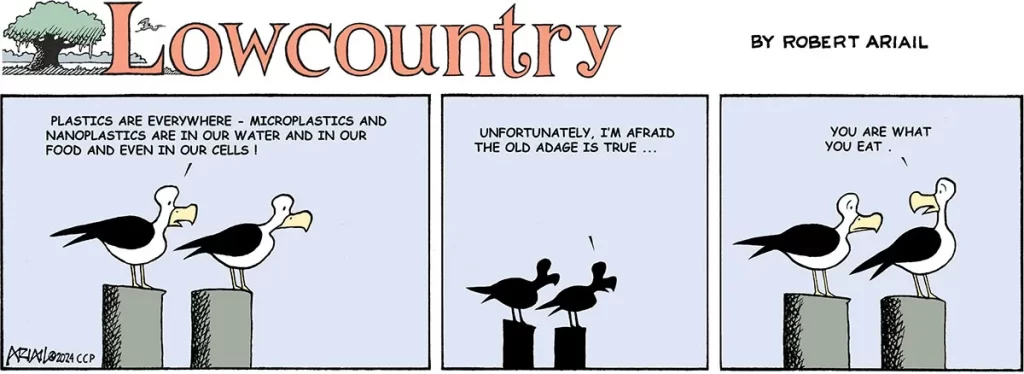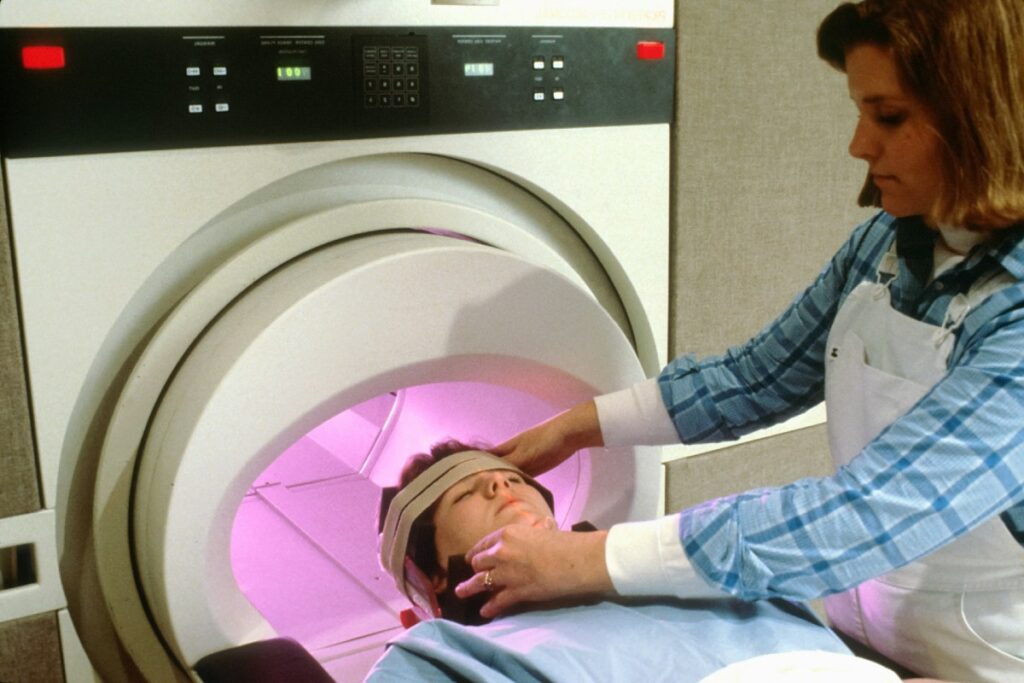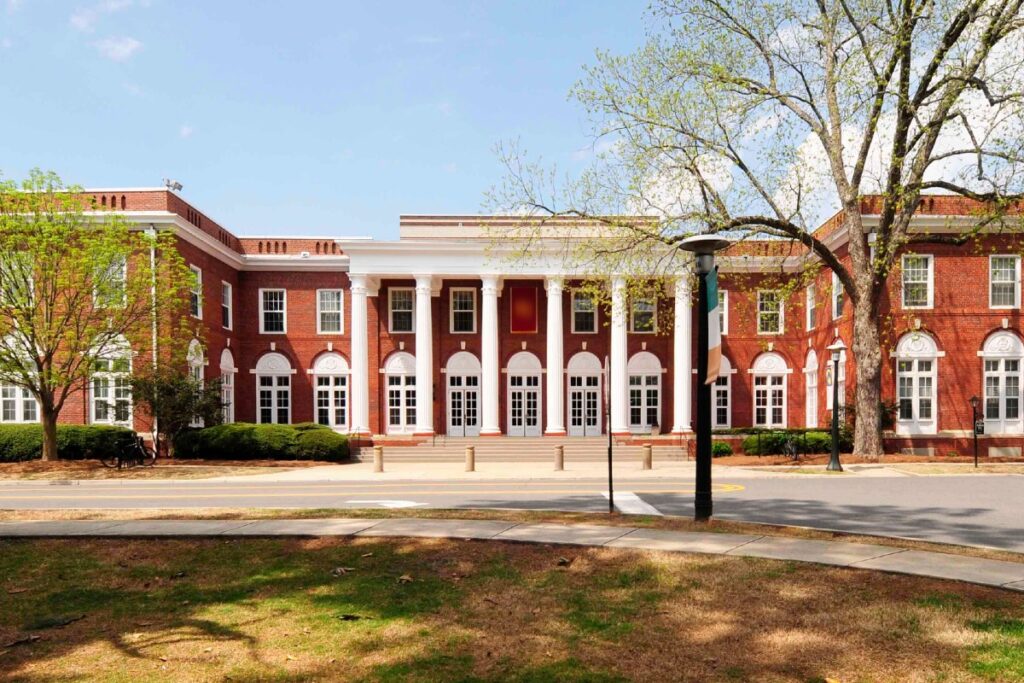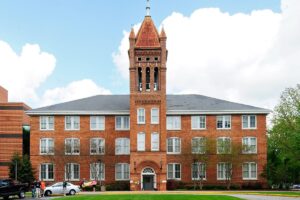STATEHOUSE REPORT | ISSUE 23.12 | March 22, 2024
BIG STORY: Energy bill riles critics, raises ominous specter
MORE NEWS: Expanded voucher bill heads to Senate
LOWCOUNTRY, Ariail: You are what you eat
COMMENTARY, Brack: Lame-brained voucher program puts public schools at risk
SPOTLIGHT: Riley Institute at Furman University
MY TURN: Pass national health legislation to promote earlier cancer screenings
MYSTERY PHOTO: Another big brick building
FEEDBACK: Consequences of open carry, more
Energy bill riles critics, raises ominous specter

By Jack O’Toole | A controversial bill that promises to meet South Carolina’s growing energy needs by ramping up in-state power production is headed to the S.C. House floor next week with bipartisan support, despite fierce opposition from many of the state’s leading consumer and environmental groups.
The legislation, which is sponsored by GOP House Speaker Murrell Smith of Sumter, calls for the overhaul of the state’s regulatory system by reorganizing its structure and providing new legislative direction to commissioners, board members and staff. Moreover, it specifically directs the industry’s chief oversight body, the Public Service Commission (PSC), to expedite consideration of large-scale energy projects, including a 2,000 megawatt natural gas-fueled power plant at Canadys in rural Colleton County that Dominion Energy and state-owned Santee Cooper hope to have open by 2031.
Supporters say the bill will ensure that South Carolina – America’s fastest-growing state in 2023 and one of its largest per-capita energy users – has a secure, reliable energy supply for decades to come.
But opponents warn that it weakens consumer protections and could lead to higher utility rates.

Last week, the bitterness in the bill led PSC Commissioner Tom Ervin of Greenville to resign from the utility board in protest of the legislation.
“House Bill 5118 would remove important regulatory guardrails,” Ervin wrote in his resignation letter, “resulting in dramatic changes in existing law which will give investor owned utilities a blank check with guaranteed profits resulting in much higher utility rates for residential customers.”
The bill in brief
At almost 100 pages, the bill is notable for its scope and detail. Its major provisions would:
- Shrink the PSC from seven members to three and direct it to provide fast-track consideration for major projects.
- Greenlight the partnership between Dominion Energy and Santee Cooper at Canadys.
- Transfer the state Consumer Advocate’s office from the Department of Consumer Affairs to the Office of Regulatory Staff, whose mission includes ensuring the financial health of state utilities.
- Allow private conversations between electric utility representatives and their regulators outside of the presence of outside organizations or members of the public.
- Create a state Energy Policy Institute responsible for guiding and coordinating energy policy.
- Encourage next-generation nuclear power projects.
- Erect barriers to new solar projects by imposing additional licensing requirements and reducing the length of guaranteed solar contracts from 10 years to five.
‘Deja vu all over again’
Despite bipartisan amendments that allowed the bill to garner unanimous support in committee, opponents say the changes did little to address what they see as its worst elements.
 “We absolutely understand there’s a need for more energy generation,” S.C. League of Women Voters President Lynn Teague told Statehouse Report. “But the General Assembly should not be intruding on the decisions that are supposed to be made by state regulatory agencies.”
“We absolutely understand there’s a need for more energy generation,” S.C. League of Women Voters President Lynn Teague told Statehouse Report. “But the General Assembly should not be intruding on the decisions that are supposed to be made by state regulatory agencies.”
Of particular concern, she said, were a provision allowing utilities to meet with regulators behind closed doors, and the decision to put economic interests, rather than the concerns of ratepayers, at the heart of the regulatory process.
“When government grants a monopoly to utilities, it’s giving them a very big asset,” Teague said. “And it’s the state’s absolute responsibility to protect the public from abuse of that asset.”
Eddy Moore, a greenhouse gas emissions expert with the Southern Alliance for Clean Energy, shares those concerns but takes them a step further.

“What the common person needs to know is that the oil and gas industry is looking for a big expansion,” Moore said in an interview, “They’re coming for your wallet, and the way they’re going to get there is by putting the expense on your electric bill.”
South Carolina, he argues, would be playing into the fossil fuel industry’s hands by making large-scale investments in natural gas infrastructure, which would guarantee industry profits for the next 20 to 30 years, regardless of the cost to ratepayers.
Nevertheless, he said, “the core of the bill is to speed the regulatory approval of something like 9,000 megawatts of gas-fired power plants” – a legislative intervention he likened to 2007’s Base Load Review Act, enabled the V.C. Summer nuclear project that eventually failed and lost more than $9 billion. Ratepayers still are paying off the debt for the abandoned project put together by Dominion predecessor SCANA and Santee Cooper.
“Really, it’s like deja vu all over again,” Moore said.
But Dominion Energy spokesman Rhonda O’Banion said concerns being raised by many of the bill’s critics are “misleading and erroneous.”
“The fact is that the energy bill will ensure the regulatory process does not allow unnecessary and costly delays in the construction of natural gas generation that is needed to keep the lights on in a reliable, affordable and increasingly clean manner in South Carolina, which is the fastest growing state in the country,” O’Banion said in a statement.
Part – but not all – of the solution

Charleston-area Democratic Rep. Spencer Wetmore agrees the state needs significant new generating capacity, and believes the amended bill “does a lot of good.”
“But obviously,” she told Statehouse Report, “the sticking point for a lot of us is this major investment in natural gas.”
That’s not to say Wetmore is opposed to the use of natural gas as a part of the solution as the state continues to move toward renewables like solar and wind energy – she isn’t. In fact, she believes it will have to be “a part” of any reasonable solution.
“The question is does it have to be this large a part – almost the whole part – of the solution.”
And the answer, she believes, is clearly no.
“Other states are generating the exact same wattage we need with renewables paired with smaller bits of natural gas,” Wetmore said. “So we know it’s possible.”
- Jack O’Toole reports on statewide issues for Statehouse Report and the Charleston City Paper. Have a comment? Send to: feedback@statehousereport.com.
House’s expanded voucher program heads to Senate

By Jack O’Toole | S.C. House Republicans gave key approval Wednesday to a bill expanding a program allowing parents to spend taxpayer money on private and home-school education – even though a pilot program has yet to begin and the state Supreme Court is still weighing whether it is constitutional.
The measure passed 69-32 Wednesday with all but two Republicans voting in favor of the bill and every Democrat voting in opposition. The bill moved to the state Senate Thursday after a routine final House vote. The proposal is expected to face tougher hurdles.
In 2023, the General Assembly passed what it called the education scholarship trust fund program with a cap of $6,000 for up to 5,000 students, according to an Associated Press report. The money can go toward tuition, transportation, supplies or technology at private schools or public schools outside a student’s district. Within three years, the current program would cap eligibility to 15,000 students in families with income of $120,000 or less per year. Last year’s measure, which created a pilot program that could cost $90 million a year, is being challenged as unconstitutional and awaits a ruling from the S.C. Supreme Court.
But this year, the separate House-passed proposal would open the program to all students and set the amount given to parents to rise along with spending per public school student. The potential cost? More than $1 billion. This year’s House bill also would expand the aid to home-schools. It also would eliminate state audits for private schools getting the money and would not require them to give their students the same standardized tests as public school students.
House Democrats suggested several changes to the bill, such as keeping the amount the state Education Department can collect to pay a private firm to run the program at 2% instead of an increase to 5% or requiring private schools to certify they didn’t raise prices for voucher students. All of their amendments were rejected.
In other recent headlines:
![]() McMaster marks new gun law with ceremonial signing. South Carolina Gov. Henry McMaster held a ceremony Tuesday to spotlight the new “constitutional carry” law that allows any adult who can legally own a gun to carry the weapon openly without a permit.
McMaster marks new gun law with ceremonial signing. South Carolina Gov. Henry McMaster held a ceremony Tuesday to spotlight the new “constitutional carry” law that allows any adult who can legally own a gun to carry the weapon openly without a permit.
Bill removing DEI from S.C. college hirings advances. Legislation that directs public colleges in South Carolina to remove diversity, equity and inclusion from their hiring and admissions decisions advanced Tuesday to the House floor over Democrats’ objections.
S.C. judicial reform leaves chief criticism of fairness unsettled. The new judicial reform effort passed last week by the Senate does not address the concern of lawyer-legislators wielding undue influence over judicial candidates, according to media reports.
S.C. victims’ rights advocates look for criminal justice reform. The Third Annual Victims Matter rally at the S.C. Statehouse Thursday called for an effort to urge state lawmakers to enhance protections for victims of violent crimes.
Despite wins, S.C.’s anti-abortion movement wants more. This story highlights how the state’s anti-abortion movement is frustrated and wants more.
2024: Sabb announces bid for reelection. S.C. Sen. Ronnie Sabb has announced he will run for reelection to the District 32 seat, which serves Berkeley, Florence, Georgetown, Williamsburg, Charleston, and Horry Counties.
S.C. political consultant Richard Quinn dies at 70. Former GOP powerbroker Richard Quinn Sr., who’s advice helped catapult many careers in the state’s Republican majority, passed away at 79-years-old. A cause of death was not disclosed.
- Have a comment? Send to: feedback@statehousereport.com.
You are what you eat

Award-winning cartoonist Robert Ariail generally has a biting or funny comment about the great state of South Carolina in his weekly cartoon. Here’s his riff on microplastics polluting South Carolina waters.
- Love the cartoon? Hate it? What do you think: feedback@statehousereport.com.
Lame-brained voucher program puts public schools at risk

By Andy Brack | Novelist Kurt Vonnegut once wrote true terror was “to wake up one morning and discover that your high school class is running the country.”
In South Carolina, perhaps that should be modified: True terror is to realize the South Carolina House of Representatives is in session.
 Just this week, the Republican majority pushed the envelope yet again on one of the four hot-button social issues that always gets it salivating like a rabid dog – education vouchers. The other three? Abortion, guns and anything related to LGBTQ people. The GOP has been ringing these bells for years without significantly making life better for all South Carolinians who live in poverty or have two or three jobs just to make ends meet.
Just this week, the Republican majority pushed the envelope yet again on one of the four hot-button social issues that always gets it salivating like a rabid dog – education vouchers. The other three? Abortion, guns and anything related to LGBTQ people. The GOP has been ringing these bells for years without significantly making life better for all South Carolinians who live in poverty or have two or three jobs just to make ends meet.
This week on a party-line vote, all but two House Republicans voted to pass a measure that would expand an unproven pilot program for up to 15,000 scholarships worth $6,000 each in public money to fund private school education. That $90 million scheme hasn’t even passed constitutional muster yet, but the hellbent House went ahead and expanded the program to open it up dramatically, potentially ripping a $1.4 billion hole into the state budget.
Where do you think that money is going to come from? Public education.
These Republicans want to cripple and defund public education just so little Johnny or Janie can go to a private school – or be paid to learn at home. This is wrong and puts all South Carolina children at risk, as we’ve written year after year. Education vouchers that use public money for private purposes fly in the face of the common good and should not be allowed. The end result will be underfunded public schools that already have too many challenges.
The ignorant voucher proposal is being slammed by the state’s public school teachers who understand how students are being used as pawns by state lawmakers doubling down in an election year as they pray they don’t get primaried by a candidate more conservative than they are.
The bill, H. 5164, sends the state “on a significant educational experiment with our students as the guinea pigs,” said North Charleston high school teacher Patrick Martin, director of Lowcountry Teacher Advocates. “Despite its propaganda which claims to broaden educational choices, the adverse effects on the state’s educational system and budget can be seen as they’ve played out in other states.
“Public money for private schools is bad news for our students. It will deplete resources and systemically contribute to underfunding an already underfunded system. We need to fund our public schools, not divert these crucial funding streams to untested private school systems with no accountability.”
Sherry East, president of the S.C. Education Association, sees the bill with a similar horror and hopes the state Supreme Court will throw out the pilot voucher program
“We haven’t implemented the first version of the voucher plan,” she said. “To expand it without knowing if or how it will work seems reckless to me. We are experimenting with a child’s education. We can’t afford to mess it up.”
And then she asks a key question that the 69 Republicans in Columbia who voted for this nonsense must have forgotten, ignored or are so blinded that they didn’t ask: “Are we really doing what is best for ALL children when we take away funding from our public schools?”
Indeed.
Let’s not let the incessant yammering on vouchers win. Let’s not let robotic House members use the same old partisan playbook to message their narrow agenda that says the hell with most people in South Carolina.
Contact your state senator today to let him or her know that you strongly oppose using public money for private and home schools. They’re the only thing standing in the way of a scam that will bankrupt public education by writing a blank check for vouchers.
Andy Brack is editor and publisher of Statehouse Report and the Charleston City Paper. Have a comment? Send to: feedback@statehousereport.com.
Riley Institute at Furman University
 The public spiritedness of our underwriters allows us to bring Statehouse Report to you at no cost. This week’s spotlighted underwriter is Furman University’s Riley Institute, which broadens student and community perspectives about issues critical to South Carolina’s progress. It builds and engages present and future leaders, creates and shares data-supported information about the state’s core challenges, and links the leadership body to sustainable solutions.
The public spiritedness of our underwriters allows us to bring Statehouse Report to you at no cost. This week’s spotlighted underwriter is Furman University’s Riley Institute, which broadens student and community perspectives about issues critical to South Carolina’s progress. It builds and engages present and future leaders, creates and shares data-supported information about the state’s core challenges, and links the leadership body to sustainable solutions.
Launched in 1999, the Institute is named for former South Carolina Governor and former United States Secretary of Education Richard W. (Dick) Riley. It is committed to nonpartisanship in all it does and to a rhetoric-free, facts-based approach to change.
- Learn more about the Riley Institute.
- Also learn more about the Riley Institute’s Center for Education Policy and Leadership.
Pass national health legislation to promote earlier cancer screenings

By Henry Well | In my over 15 years of service working for patient support nonprofits, I’ve seen firsthand the havoc that cancer wreaks on families, claiming over 11,000 lives in our state this year alone. Cancer is the number one killer for those under 85 years old, a stark reminder of the relentless challenge it poses.

The narrative around cancer is often one of anger and despair, in large part because of its seeming randomness and because a general “cure” remains elusive. However, the development of new advanced screening technologies offers a beacon of hope for better controlling cancer’s burden – as do the efforts of South Carolina’s U.S. Sen. Tim Scott, who is fighting to make them accessible to the people most at risk.
Prevention and early detection through regular screenings have long been our best defense against cancer. A person’s chances of successful treatment rise significantly when cancer is caught at its earliest stages. And while screenings such as mammograms and colonoscopies are vital, they’re focused on detecting single cancers at a time.
Newer, innovative multi-cancer early detection (MCED) tests represent a seismic shift in our ability to diagnose cancers early. These tests can identify dozens of cancer types with a single blood draw – heralding a new frontier in cancer screening. And there is excitement that these tools can benefit folks for whom traditional screening methods are less accessible – such as people living in rural areas.
But the full potential of MCEDs are hindered by existing coverage limitations. Medicare, which covers the vast majority of South Carolinians over 65, does not have a process for timely coverage of preventive services like it does for other medical procedures, drugs and devices. This means it will be years of bureaucratic delays before MCEDs are available to beneficiaries. Hundreds of thousands of cancers could go undiagnosed in the meantime.
Recognizing this issue, Scott has emerged as a champion for the cancer community, advocating for legislative changes that would ensure Medicare beneficiaries have access to MCED tests upon FDA approval. His leadership and steadfast support of the Medicare Multi-Cancer Early Detection Screening Coverage Act, underscores a commitment to removing barriers and fostering a health care landscape where breakthrough tools are within reach for America’s seniors.
The bill currently has over 300 co-sponsors in both houses of Congress – support that is overwhelmingly bipartisan. Further, more than 500 advocates and organizations devoted to cancer treatment, support and research have publicly expressed their support for this bill.
It’s a rare thing in Washington for a health care bill to have so much support from such a widespread and ideologically diverse coalition. The time is now for Congress to step up and pass Scott’s legislation – it will save lives and signify a tremendous leap forward in our collective fight against cancer.
We stand on a cusp of a new future where, thanks to regular screenings with the latest technology, finding cancer in late stages is the exception and not the norm. The choices our representatives make will determine how quickly we reach this new future. I hope they make the right ones.
Columbia resident Henry Well is the executive director of the South Carolina Cancer Alliance.
Another big brick building

What’s better than one big brick building as a mystery? How about two? Where is this one and what is it? Send your name, hometown and guess to: feedback@statehousereport.com.
 Last week’s photo, “Big brick building,” showed the Old Main Building on Lander University’s campus in Greenwood. It’s the oldest building on campus. While several readers correctly identified it, some guessed it was a building at Winthrop or Clemson universities.
Last week’s photo, “Big brick building,” showed the Old Main Building on Lander University’s campus in Greenwood. It’s the oldest building on campus. While several readers correctly identified it, some guessed it was a building at Winthrop or Clemson universities.
Hats off to this week’s correct guessers: Allan Peel of San Antonio, Texas; Steve Willis of Lancaster; George Graf of Palmyra, Va.; David Lupo of Mount Pleasant; Jacie Godfrey of Florence; Jay Altman of Columbia; Bill Segars of Hartsville; and Lucy Leaman.
- Send us a mystery picture. If you have a photo that you believe will stump readers, send it along (but make sure to tell us what it is because it may stump us too!) Send to: feedback@statehousereport.com and mark it as a photo submission. Thanks.
Consequences of open carry
![]() To the editor:
To the editor:
Frightening consequences of open carry include, at the minimum, an increase in gunshot wounds in the resolution of conflicts leading to an increase in funerals. Is carrying a gun into forbidden areas a primary offense with commensurate penalties enforceable?
– Dan Jepson, Travelers Rest
Barking up wrong tree
To the editor:
To whomever that wrote this and to the cartoonist. South Carolina is the 29th state to have this and there has been no increase in deaths or murders after the laws were in effect. So why are people so up in arms over this?
Look at all the gun crimes before this bill was signed. We also need to look at states with very strict gun laws and what do you see, more and more of the same everyday. Y’all are barking up the wrong tree on this subject. Do something with the laws to keep criminals in jail and not released after arrest. With open borders, we the people need to protect ourselves as more and more criminals are crossing the border into our country and traveling all around it.
– Jon Marien, Rock Hill
EDITOR’S NOTE: We got other letters blasting Ariail’s open carry cartoon but we couldn’t verify writers. If letters are to be published, writers must leave their name and hometown as well as a valid phone number to be used only for verification purposes.
Send us your thoughts
We encourage you to send in your thoughts about policy and politics impacting South Carolina. We’ve gotten some letters in the last few weeks – some positive, others nasty. We print non-defamatory comments, but unless you provide your contact information – name and hometown, plus a phone number used only by us for verification – we can’t publish your thoughts.
- Have a comment? Send your letters or comments to: feedback@statehousereport.com. Make sure to provide your contact details (name, hometown and phone number for verification. Letters are limited to 150 words.
- ORDER NOW: Copies are in Lowcountry-area bookstores now, but if you can’t swing by, you can order a copy online today.
- Now available as an e-book!
ABOUT STATEHOUSE REPORT
Statehouse Report, founded in 2001 as a weekly legislative forecast that informs readers about what is going to happen in South Carolina politics and policy, is provided to you at no charge every Friday.
- Editor and publisher: Andy Brack, 843.670.3996
Donate today
We’re proud to offer Statehouse Report for free. For more than a dozen years, we’ve been the go-to place for insightful independent policy and political news and views in the Palmetto State. And we love it as much as you do.
But now, we can use your help. If you’ve been thinking of contributing to Statehouse Report over the years, now would be a great time to contribute as we deal with the crisis. In advance, thank you.
Buy the book
Now you can get a copy of editor and publisher Andy Brack’s We Can Do Better, South Carolina! ($14.99) as a paperback or as a Kindle book ($7.99). . The book of essays offers incisive commentaries by editor and publisher Andy Brack on the American South, the common good, vexing problems for the Palmetto State and interesting South Carolina leaders.
More
- Mailing address: Send inquiries by mail to: P.O. Box 21942, Charleston, SC 29413
- Subscriptions are free: Click to subscribe.
- We hope you’ll keep receiving the great news and information from Statehouse Report, but if you need to unsubscribe, go to the bottom of the weekly email issue and follow the instructions.
- Read our sister publication: Charleston City Paper (every Friday in print; Every day online)
- © 2024, Statehouse Report, a publication of City Paper Publishing, LLC. All rights reserved.















 We Can Do Better, South Carolina!
We Can Do Better, South Carolina!